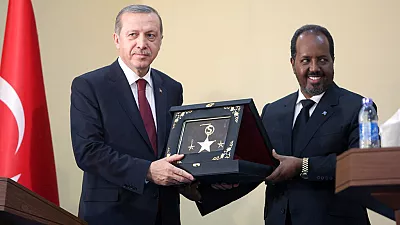Author: Myganacsi.com Insights Team
Date: May 13, 2025
Introduction
The recent hydrocarbons agreement between Somalia and Turkey has sparked intense debate across the Horn of Africa and beyond. Signed in March 2024 and ratified in April 2025, the deal grants Turkey extensive rights to explore and develop Somalia’s onshore and offshore oil and gas reserves. For Somali entrepreneurs and business leaders, this partnership presents both unprecedented opportunities and significant risks. Here’s a breakdown of what this deal means for Somalia’s business community.
Key Terms of the Deal
- Operational Rights: Turkey’s state-owned TPAO secured exclusive rights to explore three offshore blocks and onshore areas totaling 16,000 km², with seismic surveys already 78% complete .
- Revenue Sharing: Turkey can recover up to 90% of annual oil/gas output as “cost petroleum” to cover exploration expenses. After cost recovery, Somalia receives 70% of profits .
- Exemptions: Turkey pays no upfront bonuses, surface fees, or administrative costs .
- Security: Turkish naval forces will protect exploration activities, with costs deducted from Turkey’s revenue share .
Opportunities for Somali Businesses
1. Infrastructure and Job Creation
The deal includes commitments to build infrastructure (ports, roads, and energy facilities) and fund workforce training programs. This could create subcontracting opportunities for Somali construction firms and employment for skilled labor .
2. Technology Transfer
Turkish firms are mandated to share technical expertise, which could help Somali engineers and energy professionals gain critical skills for future projects .
3. Economic Diversification
If oil production succeeds, Somalia could reduce its reliance on aid and agriculture. Local businesses might benefit from spin-off industries like logistics, hospitality, and equipment supply .
4. Regional Stability
Turkey’s military presence may curb piracy and Al-Shabaab threats, improving security for businesses operating near coastal areas .
Risks and Challenges
1. Sovereignty Concerns
Critics argue the deal undermines Somalia’s control over its resources. Turkey can transfer exploration rights to third parties without Somali approval, and disputes are settled in Istanbul, not Mogadishu . This could deter other investors wary of legal imbalances.
2. Limited Short-Term Gains
Somalia’s immediate revenue is capped at 5% of production (via royalties) until Turkey recovers its costs. For businesses, this means delayed economic benefits .
3. Geopolitical Tensions
The deal has angered Somaliland, which claims sovereignty over parts of the explored territory. Regional disputes with Ethiopia and Egypt could disrupt trade routes or escalate conflicts, destabilizing the business environment .
4. Dependency on Turkey
Overreliance on Turkish capital and expertise might stifle local innovation. Past deals, like the failed 2021 U.S. Coastline Exploration agreement, show how fragile partnerships can collapse, leaving Somalia vulnerable .
Balancing the Scales: Recommendations for Somali Businesses
- Advocate for Transparency: Demand clarity on revenue allocation and ensure community projects are prioritized .
- Build Capacity: Partner with Turkish firms to acquire technical skills and prepare for future energy-sector roles.
- Diversify Partnerships: Engage with other investors (e.g., UAE, China) to avoid over-dependence on Turkey .
- Monitor Political Risks: Stay informed about tensions with Somaliland and Ethiopia, which could impact trade and security .
Conclusion
The Turkey-Somalia oil deal is a double-edged sword. While it offers a rare chance to kickstart Somalia’s energy sector and attract foreign investment, the terms heavily favor Turkey and risk deepening geopolitical fractures. For Somali businesses, success hinges on leveraging short-term opportunities while advocating for fairer terms and long-term sustainability. As the saying goes, “A nation’s wealth lies in its people”—ensuring this deal benefits ordinary Somalis will require vigilance, collaboration, and strategic planning.
Explore more insights and opportunities at Myganacsi.com.
Sources: Nordic Monitor, Modern Diplomacy, Middle East Eye, Addis Standard, Turkish Minute, The Africa Report, Reuters.



